Coronavirus: China embassy accuses DFAT of dirty tricks as relations fray
China’s embassy defends its unprecedented move to reveal details of a private call with Australia’s top foreign affairs official.
China’s Embassy in Australia has defended its unprecedented move to reveal the details of a call with Australia’s top foreign affairs official, accusing DFAT of playing “petty tricks.”
DFAT secretary Frances Adamson has refused to comment on the contents of her call with Chinese Ambassador Cheng Jingye, even though he accused of her trying to “cry up wine and sell vinegar” and downplays Australia’s push for a global review into the origins of coronavirus.
A Chinese Embassy spokesman on Wednesday morning said the release of the call Q&A was legitimate and a response to “leaks” from Australian officials about Ms Adamson’s diplomatic overtures.
“The Q&A of the Embassy Spokesperson in the afternoon of 28 April was a legitimate response to the earlier breach of diplomatic protocol by the Australian side,” the spokesman said.
“The report on the phone call between the Chinese Ambassador and DFAT Secretary first appeared on Australian media. The phone call itself as well as the content of the conversation was obviously leaked by some Australian officials. As the Australian media report was inaccurate and misleading, the Embassy had no choice but to set the record straight.
“The Embassy of China doesn’t play petty tricks, this is not our tradition. But if others do, we have to reciprocate.”
PM pushes for COVID-19 inquiry
Prime Minister Scott Morrison has vowed to continue pushing for an international inquiry into the origins of coronavirus and the World Health Organization’s handling of the pandemic, despite mounting attacks from China.
After China’s Embassy in Australia accused the Prime Minister and DFAT of “petty tricks” and “political games”, Mr Morrison said he would still push for an investigation ahead of the meeting of the World Health Authority later next month.
“What Australia is pursuing is not targeted. It is said independently, it is said out of common sense, and I think in Australia’s national interests, and in the global interest,” he said in Canberra.
“And so I find Australia’s position to be not remarkable at all, but one that is entirely responsible, and I am sure is broadly seen in that light around the world.”
Mr Morrison says he is concerned about all wildlife wet markets across the globe, as fears rise about the operation of such markets in Indonesia.
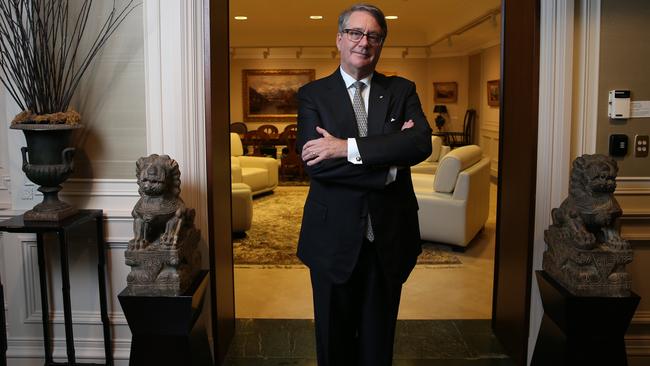
DFAT responds to China ambassador leak
The man appointed by the Morrison government to spearhead a revamp of ties with Beijing has quietly resigned his post as diplomatic relations deteriorate and China’s ambassador issues new demands for Australia to stop playing “political games”
Former federal MP Warwick Smith stepped down several weeks ago as chairman of the National Foundation for Australia-China Relations and is understood to hold concerns about the new body after it replaced the 40-year-old Australia-China Council, of which he was longstanding chairman.
The Australian can also reveal the Morrison government will further anger China by pursuing its call for a review into the origins and handling of the COVID-19 pandemic at a meeting of the World Health Organisation’s decision-making body next month.
The growing tensions between the countries were exacerbated on Tuesday when Chinese ambassador Cheng Jingye revealed details of a private conversation with Department of Foreign Affairs and Trade secretary Frances Adamson. The embassy claimed Ms Adamson had “congratulated” China on its suppression of the virus in Wuhan and “tried her best to defend Australia’s proposal about the independent review” but admitted it was “not the time to commence the review now”.
The fiery statement from the embassy said Mr Cheng dismissed the Morrison government’s proposal as a “political manoeuvre” and “called on Australia to put aside ideological bias, stop political games and do more thing(s) to promote … bilateral relations”.
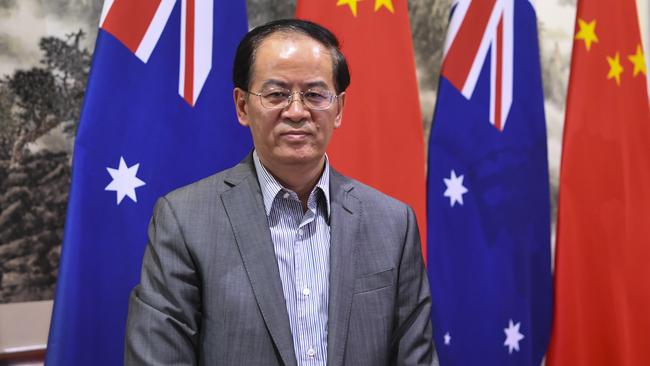
“Just as a Western saying goes: cry up wine and sell vinegar,” the embassy said.
But the DFAT responded to the Chinese Embassy’s leaking of the private conversation saying it won’t respond by “itself breaching” diplomatic courtesies.
DFAT’s statement said it will “not respond by itself breaching the long standing diplomatic courtesies and professional practices to which it will continue to adhere”.
“How foreign missions engage the Australian media are matters for those missions,’’ it said.
Trade Minister Simon Birmingham said on Tuesday it was “for the ambassador to choose to make public his views”.
“Our government is very clear that we’ve seen enormous loss of life around the world, of hundreds of thousands of people, huge economic disruption to billions of lives across the planet,” he told ABC radio. “And of course that warrants transparent investigation to make sure it doesn’t happen again.”
The World Health Assembly meeting was to have been held in Geneva, Switzerland, from May 17-21 but is now expected to take place via video-conference.
If the virtual meeting goes ahead, it is understood Australia’s delegation head, Department of Health secretary Caroline Edwards, will press the case for a thorough review of the pandemic.
It is understood she would also raise Scott Morrison’s proposal for WHO officials to be given sweeping new powers — like those of weapons inspectors — to conduct on-the-ground investigations of suspected pandemics.
Australia is seeking support for the proposals in bilateral talks with other countries, but has yet to secure strong endorsement from other national leaders amid a furious response from China.
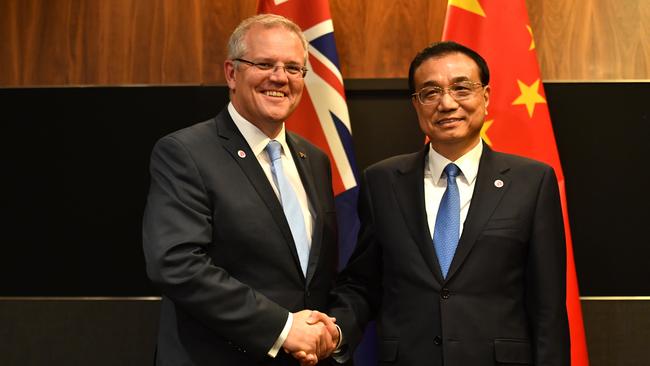
The new National Foundation for Australia-China Relations — handed $44m over five years — was set up by the government to play a key role in improving relations. It was to commence early this year but The Australian understands it held one brief meeting before the coronavirus lockdown.
In a setback for the government, Mr Smith handed in his resignation about a month after Foreign Minister Marise Payne announced on February 27 the 16-member advisory board of the foundation.
Mr Smith, a former Howard government minister and well-connected corporate heavyweight who first travelled to China more than 30 years ago, has served as head of the Australia-China Business Council and the Asia Society, and is chairman of the Business Council of Australia’s China Leadership Group.
Senator Payne said he had “worked tirelessly to promote Australia’s engagement with China” and thanked him for his “service and advice over many years”. “We look forward to continuing to work with Mr Smith in other roles related to this important relationship,” she said.
“I also look forward to engaging with the advisory board on the development and growth of the foundation in the national interest. Working with the board, the government will develop the new foundation to support Australia’s practical co-operation and engagement with China.”
The new body was tasked with bringing together governments, business, education institutes, cultural sectors and community groups to strengthen engagement with Beijing.
Health Minister Greg Hunt said on Tuesday that Australia’s call for a review into the pandemic was sensible and reasonable, “and it would be extraordinary not to do that”, given the more than three million confirmed cases of the virus and more than 210,000 dead.
“We want a clear, independent, fearless global review of the origins, the actions, and the global path forward, in relation to this and all future pandemics,” he said.
“The reason we want a review is to make sure we understand exactly how this disease arose.”
While the virus is widely believed to have originated in a Wuhan wet market, Mr Hunt left the door open to the possibility it might have escaped from a biological lab. “The advice we have continues to be that it passed from the animal kingdom to humans,” he said. “We have no information that it is other than from the animal kingdom at this stage, but everything should be examined.”
Mr Cheng, in an interview with the Australian Financial Review published on Monday, warned the push was “dangerous”, and foreshadowed retaliation through consumer boycotts of Australian exports. The remarks earned a swift rebuke from Senator Payne, who said Australia would not stand for “economic coercion”.
The Lowy Institute’s China program director, Richard McGregor, said he was surprised the Morrison government was leading the charge against China — Australia’s biggest trading partner — without first marshalling a strong international coalition to back the proposed review.
“From our point of view I would have thought we’d want buy-in not just from the US government but from like-minded countries like France, German and Japan,” he said. “But at the moment we seem to have had only very limited support at foreign minister level from the UK and New Zealand.”
KPMG head of Asian and international markets Doug Ferguson said despite the diplomatic tensions Australia was more economically reliant than ever on China. Australia’s exports to the country rose by 26 per cent to $153bn last year.
“Our exports to China dwarf the next-largest markets in Japan at $61bn and South Korea at $27bn so we need to keep perspective,” he said. “While Australia’s business leaders will definitely continue to look to diversify exports to other complementary markets like Indonesia, India and Vietnam … they are much smaller markets and, while promising, will take time.”
There is a growing political consensus that Australia needs to stand its ground and refuse to capitulate to Beijing.
Opposition foreign affairs spokeswoman Penny Wong backed the government’s call for a review, while Labor backbencher Kimberley Kitching blasted Mr Cheng’s “extraordinary” comments. “It is hard to read them as anything but a threat that if Australia continues to push for an independent inquiry into the origins of the coronavirus, then the economic consequences brought against us will be dire,” she said.
Since COVID-19 struck, the government has become progressively more hawkish on China, pointing the finger of blame at that country’s wet markets and demanding the WHO “do something” about them. Mr Morrison declared last week that the world needed “an independent inquiry’’.

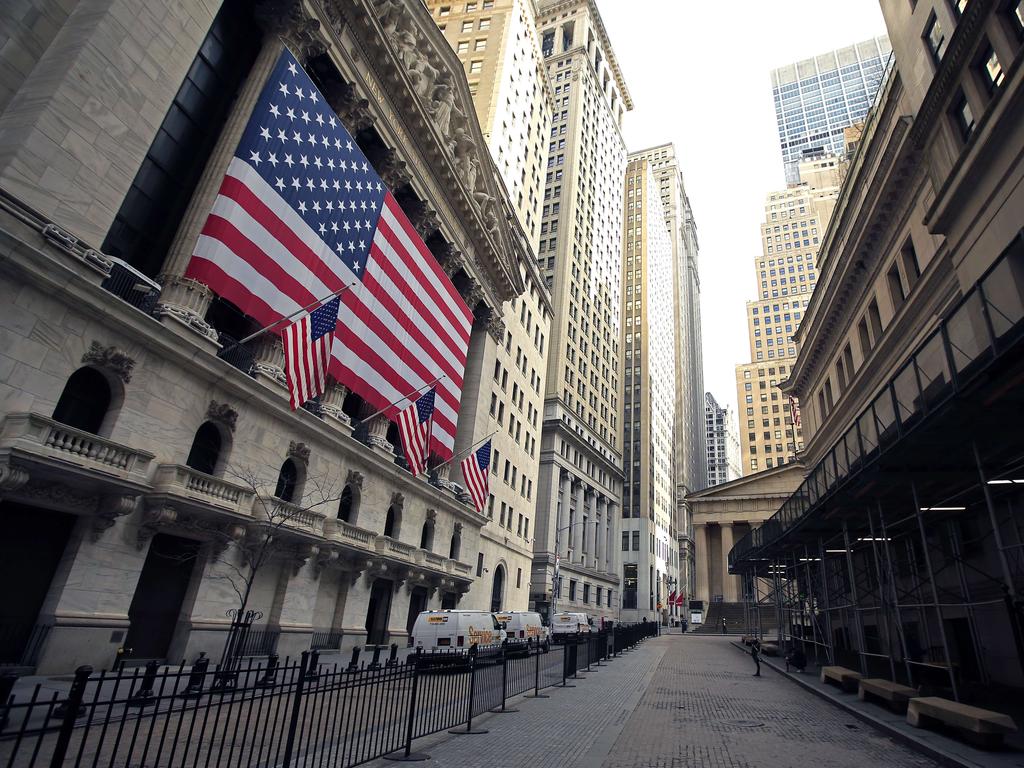

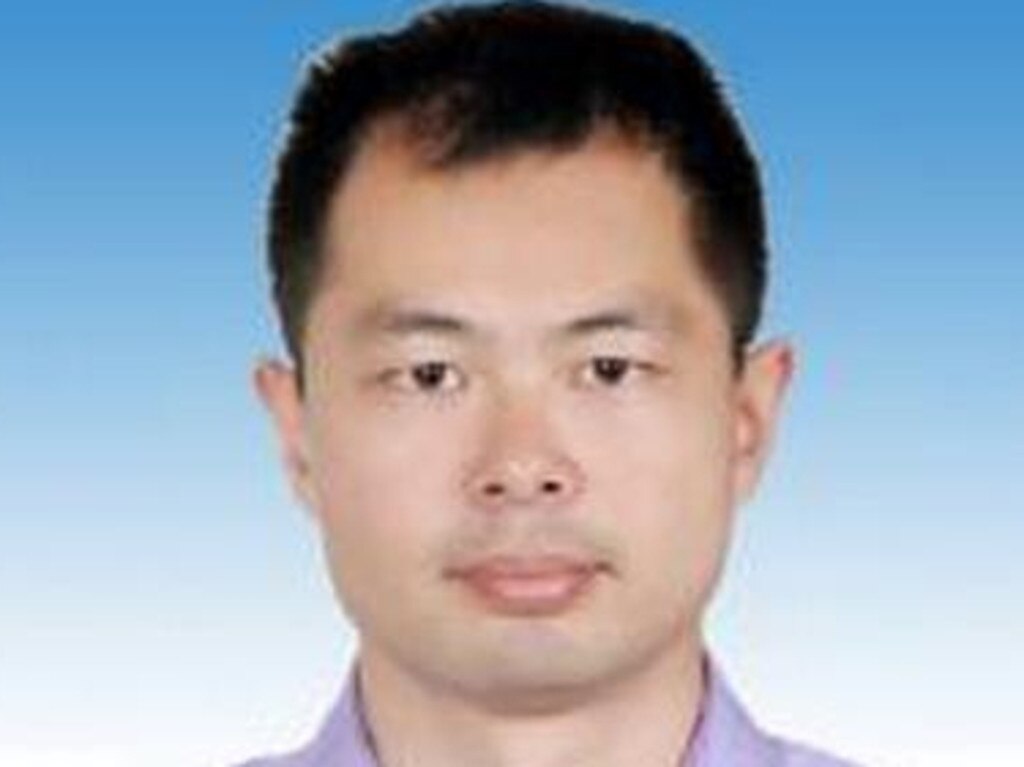
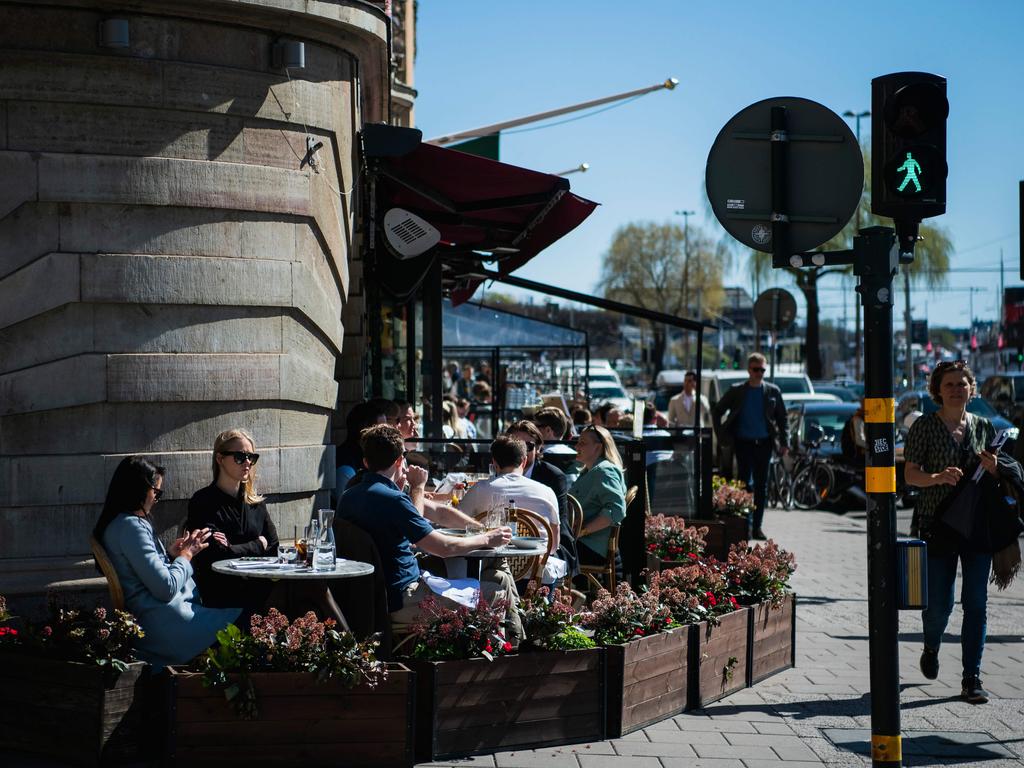

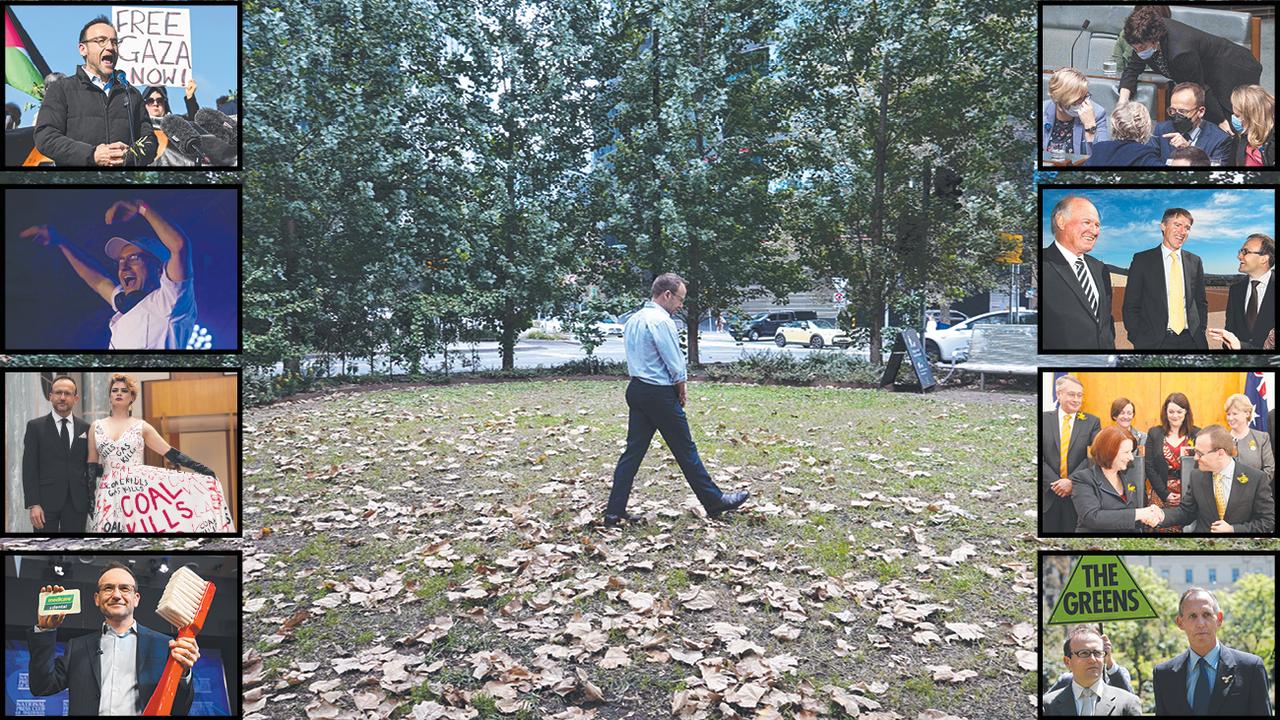
To join the conversation, please log in. Don't have an account? Register
Join the conversation, you are commenting as Logout